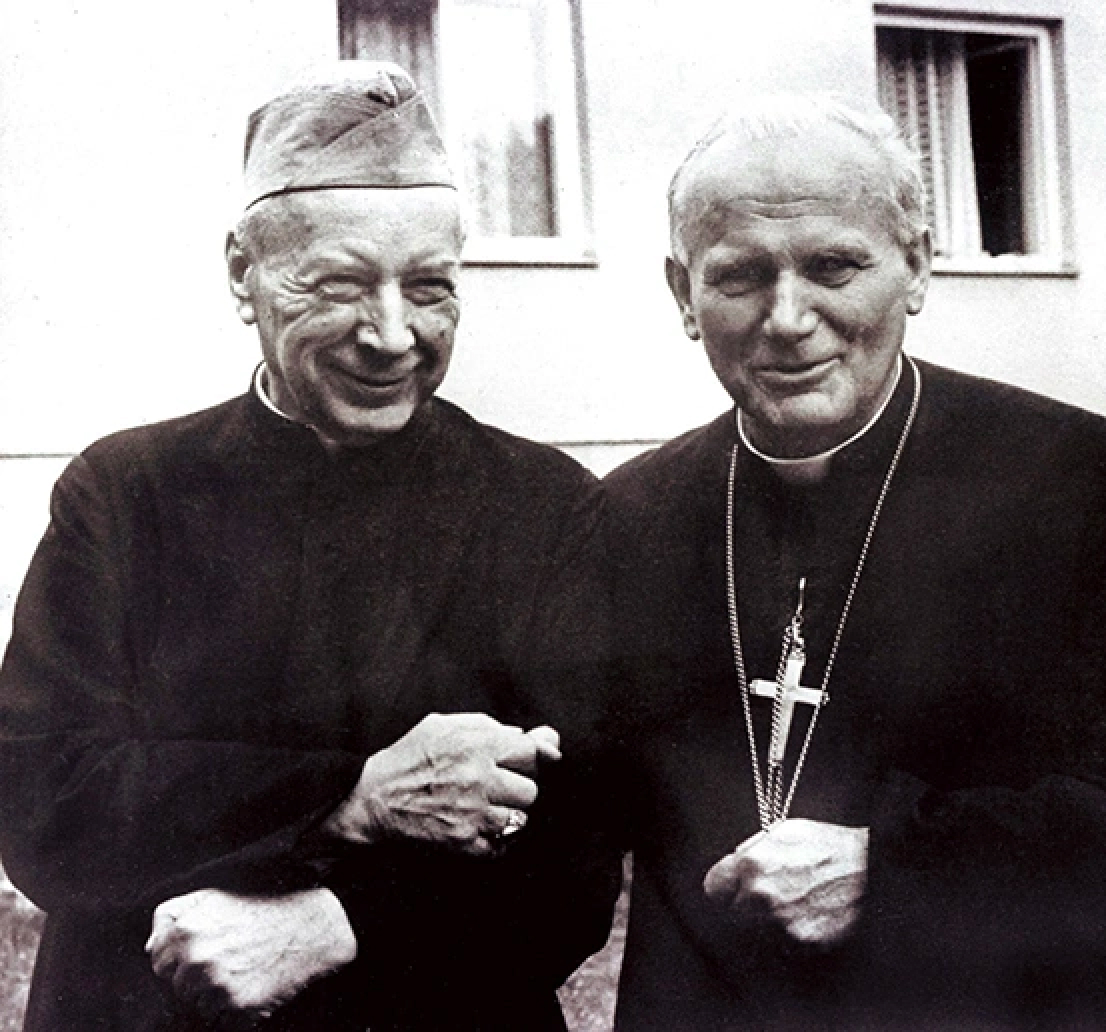Stefan Wyszyński was born on August 3rd, 1901, in Zuzela in Mazovia, to Stanisław Wyszyński and his wife Julianna née Karp. Although his small homeland was in the Russian Partition, Stefan was brought up in respect for Polish history and culture by his parents, which allowed him to survive the time of severe Russification of Poland. In 1917, he decided to enter the seminary in Włocławek. He was ordained a priest on August 3rd, 1924, by Bishop Wojciech Owczarek, in the Włocławek Cathedral. He worked in the parish of Przedecz and the cathedral parish in Włocławek. There, he pastored among workers while learning about their difficult hardship and living conditions. In 1929, he earned a doctorate degree at the Catholic University of Lublin with a PhD thesis on “The rights of family, Church and State to the school” [Polish: Prawa rodziny, kościoła I Państwa do szkoły]. He was an editor in scientific periodicals Cuyavian Word [Polish: Słowo Kujawskie] and Priests' Athenaeum [Polish: Ateneum Kapłańskie]. After the outbreak of the Second World War in September 1939, it turned out that Father Wyszyński was on the Gestapo wanted list. He was ordered by Bishop Michał Kozal to leave Włocławek, which saved him from arrest and deportation to a concentration camp. During the war he pastored in Kozłówka and Żułów. In 1942, he came to Laski to take up chaplaincy duties at a medical centre for blind children. During the Warsaw Uprising in 1944, he became a chaplain of the Home Army Grouping "Kampinos", under the alias Radwan III. He fulfilled traditional pastoral duties, confessing wounded soldiers and bringing them comfort. He was also involved in all activities related to nursing the wounded. Every day he visited all the sick and took their temperature. He accompanied dying soldiers during operations. He washed, dried and ironed the bandages so that they could be used to dress the next wounded. Also, he repaired and cleaned uniforms so that soldiers recovering from illnesses would have something to wear. Together with blind boys, he helped bring the wounded to the hospital. Despite the danger, he organized regular meetings for lay youth and nuns. He gave lectures on economics and co-operativity to the blind. He believed the blind, once educated, should form cooperatives and their own factories, which would allow them to gain a decent living. He luckily avoided arrest when, in the corridor of the administrative building, he met German soldiers who asked him if he knew where Wyszyński lived. Keeping his composure, he showed the right room to them and went in the direction of the chapel. They didn’t find him. Towards the end of the Warsaw Uprising, while walking through the forest, Father Wyszyński saw Warsaw in flames. The wind blowing from the direction of the capital brought him a burnt piece of paper with the inscription: “You shall love!”. He took that piece of paper to the chapel, placed it on the altar, and said that this was the message of burning Warsaw for us. In 1946, Father Wyszyński was appointed Bishop of Lublin, and in 1948 he became the Metropolitan of Gniezno and Warsaw, the Primate of Poland. He was the leader of two archdioceses, as in the ecclesiastical order Gniezno and Warsaw were united by a personal union. He led the Polish Church in the difficult period of the communist regime and fought to save the nation's Christian identity and protect it from the communists' program of laicization. He spent three years in prison, from 1953 to 1956. He insisted that the principles of love, solidarity and freedom be respected in social life. He was an active participant in the Second Vatican Council (1962-1965) and took part in the conclave that elevated John Paul II to papal office. He died on May 28th, 1981 and was buried in St. John's Archcathedral in Warsaw. Edgar Sukiennik PhD Translate: Sandra Liwanowska Bibliography:
- Czaczkowska, Kardynał Wyszyński. Biografia, Warszawa 2013.
- Raina, Stefan kardynał Wyszyński. Prymas Tysiąclecia, t. 1, Wrocław 2016.
- Rastawicka, Ten zwycięża, kto miłuje, Warszawa 2019.
- Wyszyński, Droga życia, Warszawa 2001.
- Notation from the Congregation of Franciscan Sisters Servants of the Crossin the collection of the Museum of John Paul II and Primate Wyszyński in Warsaw.
